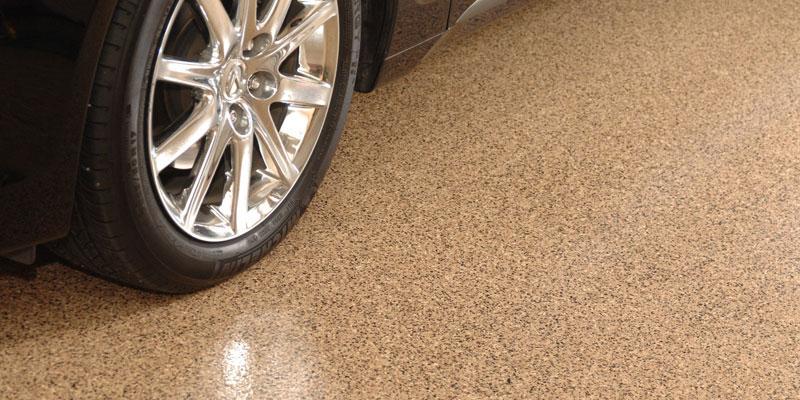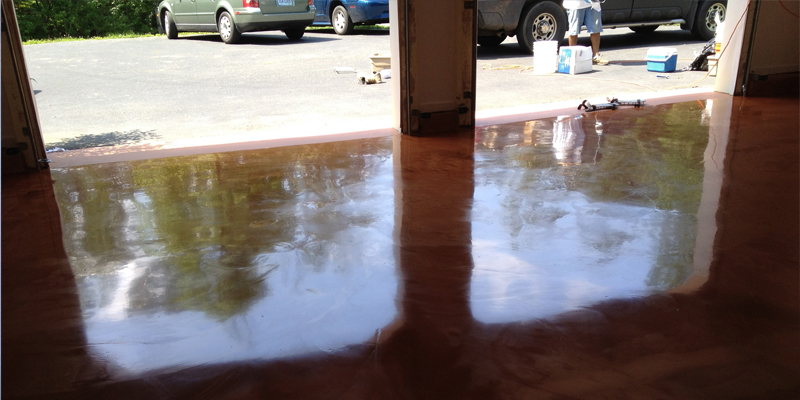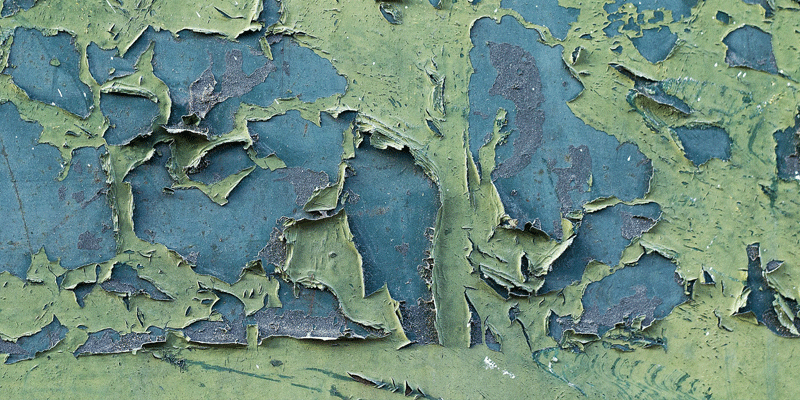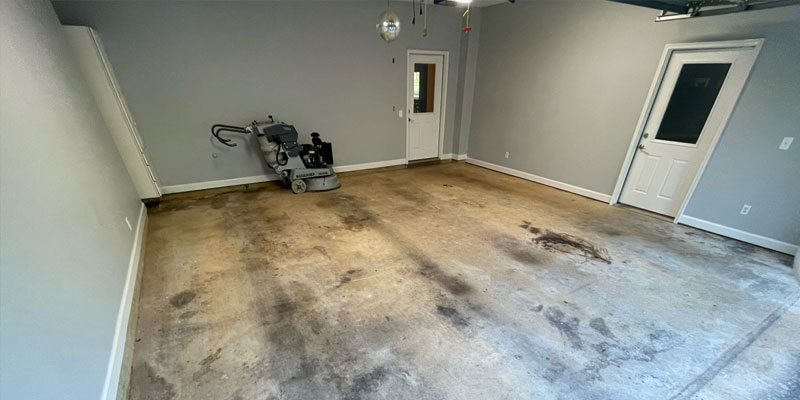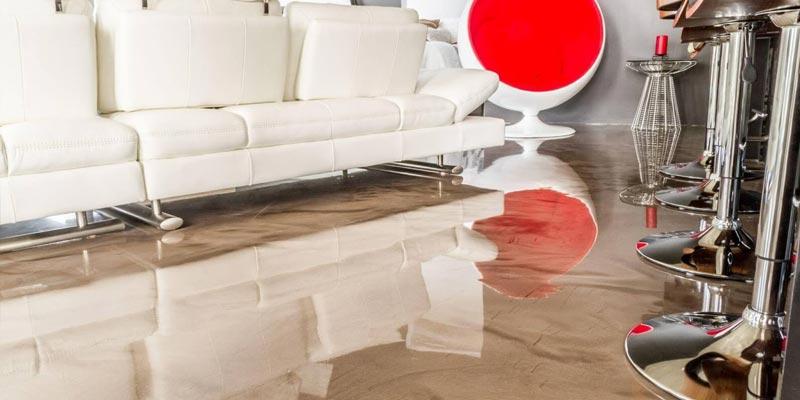Most Common Benefits and Drawbacks of an Epoxy Floor
Most Common Benefits and Drawbacks of an Epoxy Floor
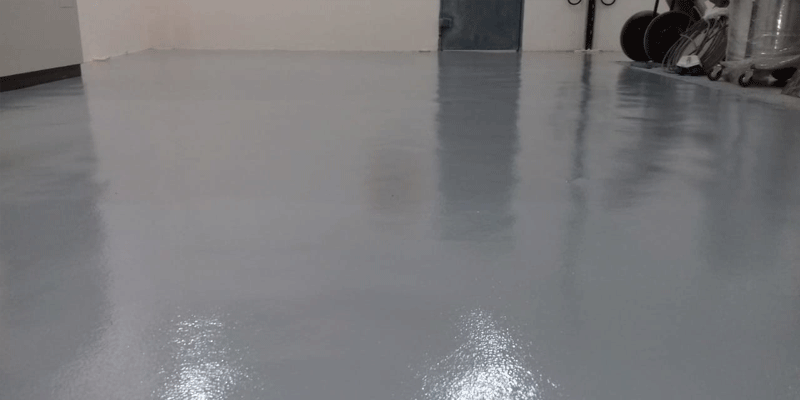
If you’re considering an epoxy floor for your home or business, it’s important to weigh the pros and cons before making a decision. Epoxy floors are durable and easy to clean, but they can be expensive to install and may require more maintenance than other types of flooring.
This article will cover all the fundamentals of epoxy flooring and the pros and cons of installing an epoxy floor.
What is Epoxy?
Epoxy is a type of resin used to create a hard, durable surface. Epoxy flooring is made by mixing epoxy resin with a hardener and then applying it to the floor. The mixture will cure and harden, creating a smooth, glossy surface.
Epoxy floors are popular in commercial and industrial settings because they are slip-resistant and easy to clean. They are also resistant to chemicals, oil, and grease, making them ideal for use in garages or workshops.
Benefits of an Epoxy Floor
There are many benefits to installing an epoxy floor:
1. Durability: Epoxy floors are very durable and can last for many years with proper care and maintenance.
2. Easy to clean: Epoxy floors are easy to clean and maintain, and they resist stains and spills.
3. Resistant to chemicals and oil: Epoxy floors are resistant to chemicals, oil, and grease, making them ideal for use in garages or workshops.
4. Slip-resistant: Epoxy floors are slip-resistant, which makes them safe for use in commercial or industrial settings.
5. Affordable: Epoxy floors are an affordable flooring option compared to other types of flooring such as hardwood or tile.
Drawbacks of an Epoxy Floor
There are some drawbacks to installing an epoxy floor:
1. Requires regular maintenance: Epoxy floors require regular cleaning and maintenance to keep them looking their best.
2. Expensive to install: Epoxy floors can be expensive to install, especially if you hire a professional to do the work.
3. Can be slippery when wet: Epoxy floors can be slippery when wet, so they may not be ideal for use in areas where there is a lot of foot traffic.
4. Not eco-friendly: Epoxy floors are not eco-friendly because they are made from petroleum products.
5. Requires a curing time: Epoxy floors require a curing time of 24-48 hours before they can be used, so you will need to plan ahead if you’re installing an epoxy floor.
How is an Epoxy Coating Installed?
If you’re considering an epoxy floor for your home or business, it’s important to understand how the process works. Epoxy floors are typically installed by a professional, but there are DIY kits available if you’re interested in doing the work yourself.
The first step is to prepare the floor’s surface by sanding it down and removing any debris. Then, the epoxy resin and hardener are mixed together and applied to the floor using a roller or brush. The mixture will need to cure for 24-48 hours before being ready for use.
Once the epoxy has cured, you can apply a topcoat if desired. Topcoats are not required, but they can improve the durability and appearance of the floor.
Are There Different Types of Epoxy Flooring?
There are two main types of epoxy flooring:
1. 100% solid epoxy: This type of epoxy flooring is the most durable, but it can also be quite expensive.
2. Water-based epoxy: Water-based epoxy is less durable than 100% solid epoxy, but it is more cost-effective and easier to install.
When considering an epoxy floor for your home or business, it’s important to weigh the pros and cons to decide if it’s the right flooring option for you. Epoxy floors have many benefits, but they also require regular maintenance and can be expensive to install.
If you’re looking for a durable, easy-to-clean floor that will last for many years, an epoxy floor may be the right choice for you. However, if you’re on a budget or you’re not interested in regular maintenance, another flooring option may be better suited for your needs.
Frequently Asked Questions About Epoxy Flooring
1. How much does an epoxy floor cost?
Epoxy floors can be expensive to install, especially if you hire a professional to do the work. However, they are an affordable flooring option compared to other types of flooring, such as hardwood or tile.
2. How long does it take to install an epoxy floor?
Epoxy floors typically need to cure for 24-48 hours before being ready for use. If you’re hiring a professional, it may take several days or even weeks to complete the installation process, depending on the size of the space and the complexity of the job.
3. How do I care for an epoxy floor?
Regular cleaning and maintenance are required to keep your epoxy floor looking its best. Sweeping or vacuuming the floor to remove dirt and debris and mopping with a mild soap and water solution. You may also need to reapply the top coat every few years to protect the floor from wear and tear.
4. Can I install an epoxy floor myself?
There are DIY kits available for those interested in installing their own epoxy floor. However, the process can be complicated and time-consuming, so it’s generally best to leave it to the professionals.

